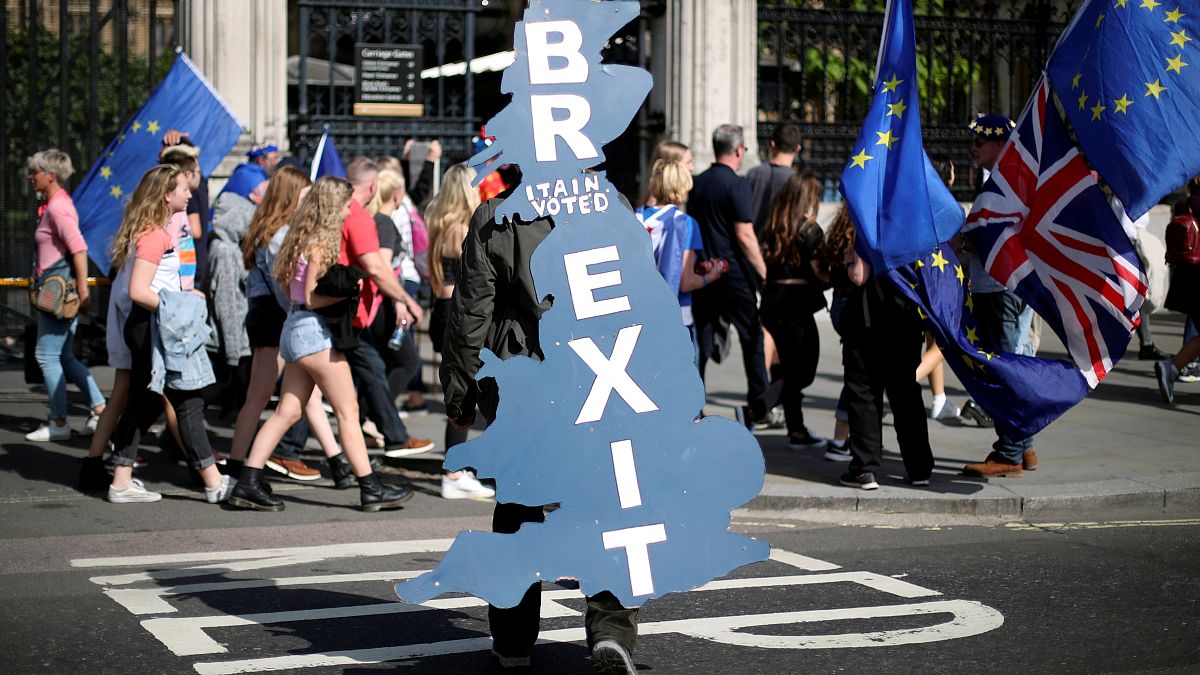"There is little respite from this uncertainty and that seeps in and leads to unsettling anxiety." Brexit is one of the hottest topics right now, but a psychotherapist told Euronews that it's also taking a toll on people.
A recent Britain Thinks poll showed that 83% of people were sick of hearing about Brexit, while 64% believed it was damaging their mental health.
To check if this was the case, we caught up with Sharon Leclercq-Spooner, a full-time, anti-Brexit activist based in Brussels. The trade expert reckons Brexit has taken a toll on her mentally and physically. She moderated an anti-Brexit event on an EU council day, and the stress overcame her.
"It turns out I've got shingles and that's not good," she said. "That's probably just doing too much worrying. I call it Brexititis because it came on the day of that Council."
Leclercq-Spooner gave up her day job to devote all of her time to Brexit, spending her days listening to LBC radio, trying to influence the debates in Britain and organising protests. She said it's not what she imagined for herself.
"I never thought that I would be out on the streets campaigning, but I went on the march in London first and it was nice," she said.
Leclercq-Spooner has two daughters, both of whom are part of the anti-Brexit movement. Her older daughter, Armelle, studied in the UK and said she felt discouraged by the way her classmates voted on Brexit.
"It makes me very sad," she said. "I was 17 when the vote happened. I was going to the UK the next year to study. And honestly, it made me a lot less confident about studying in the UK."
Many households share these frustrations. Julia Bueno is a London-based psychotherapist. She said politicians should not be perpetrating anxiety and stress.
"We elect our politicians to look after us and to voice our wishes," she said. "Most people I speak to feel that is not happening. There is so much uncertainty and that is difficult for the human psyche."
Bueno also said the over-saturation of Brexit in the media could be contributing to people's deteriorating mental health.
"It is there 24/7 on the news, in the papers, in people's conversations," she said. "There is little respite from this uncertainty and that seeps in and leads to unsettling anxiety."
The conversations aren't ending soon. On July 22, the Tories will choose a new leader to replace Theresa May. The remaining candidates, Boris Johnson and Jeremy Hunt, both believe the UK is better off alone.
